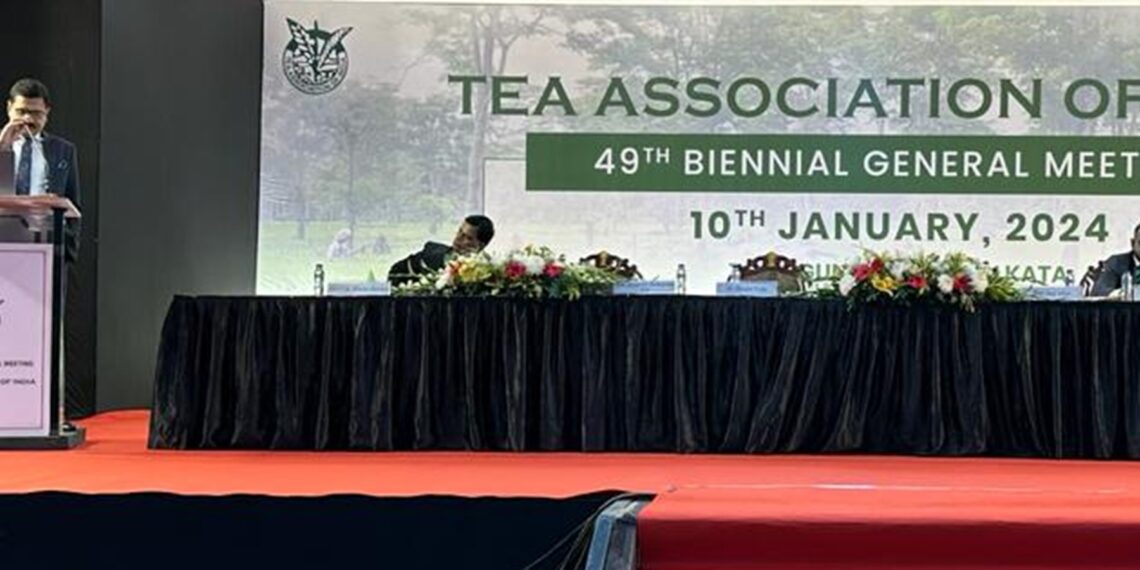GUWAHATI: The 49th Biennial General Meeting of the Tea Association of India was held at the Tollygunj Club in Kolkata on January 10.
The event commemorated the remarkable 200-year journey of Assam Tea.
Addressing the gathering, the Association’s President, Ajay Jalan began by paying homage to the pioneers who laid the foundation for this extraordinary journey, turning the spotlight on the industry’s rich history.
However, he didn’t shy away from addressing the current challenges, drawing a parallel to the tumultuous period of 2002-2007.
“The economic strides made by our nation are indeed commendable, yet the tea industry is currently experiencing challenges reminiscent of the dark period of 2002-2007, calling for introspection and resilience,” he said.
President Jalan further added that despite a 39% increase in India’s tea production over the last 15 years, reaching 1366 mkgs in 2022, he noted a 1% decline in the current year compared to 2022, projecting an annual production of 1365 M.Kgs.
The President also advocated for technological intervention as a transformative solution to address rising costs and productivity concerns.
“The technology such as precision agriculture which includes GPS mapping, IoT sensors, data analytics is order of the day and can be introduced in the field works to increase quality, productivity, adapt and mitigate Climate Change while reducing cost of production. Similarly In the factories, automation and AI driven systems have the potential to revolutionise tea processing,” he said.
Jalan also highlighted the industry’s struggle with the perception of tea as a common man’s drink, leading to a race for cheaper teas and a decline in quality.
“In India, tea is perceived as the common man’s drink, where lower price is key to gaining market share. This race to the bottom, for cheaper and more affordable teas to gain higher market share, has led to a decline in the quality of teas, as quality comes at a cost,” he added.
Highlighting the health benefits of tea, the President also noted its status as a calorie-free, salt-free, fat-free beverage with high flavonoid content.
President Jalan urged a repositioning of tea to enhance its perception and consumption patterns, stressing on the need for a strategic shift in the industry.
He called for early closure of production, waste regulation, and import restrictions to address the oversupply issue.















